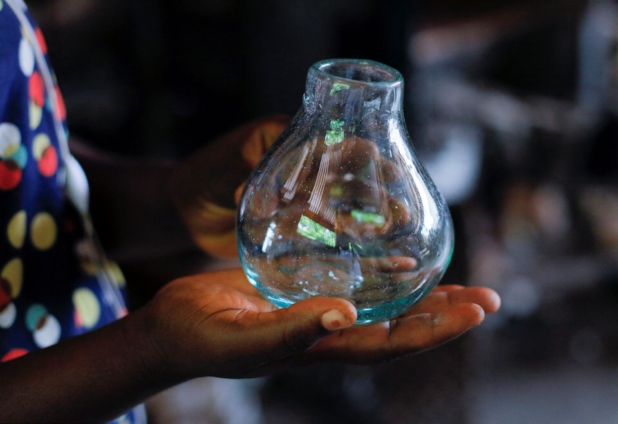Michael Tetteh, Ghana's only professional glassblower, clenched his teeth as he gripped a red-hot ball of molten glass, his burned and blistered hands bare against the steaming stack of wet newspaper he used to protect them.
The 44-year-old toiled in the heat of scrap-metal kilns burning at nearly 1,500 celsius (2,700 Fahrenheit), pregnant with melted windowpanes, TV screens, and soda bottles he would soon transform into elaborate vases swirling with psychedelic colour.
Some become red vases with streaks of black, other green pitchers and some clear, everyday bottles.
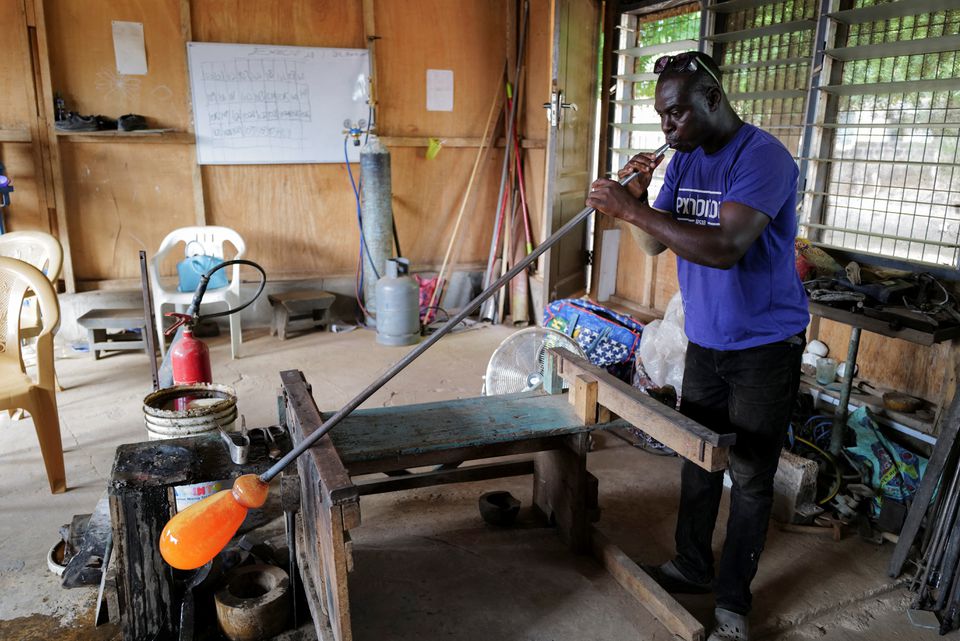
"Glass... is my passion, my heart," he said. "It's like life. It takes you on a journey from one (stage) to another."
Tetteh's strict use of recycled materials, which he collects from scrap yards and landfills in the capital Accra, is part of a stated mission to reduce Ghana's glass waste and what he considers wasteful imports.
He envisions a Ghana free of foreign glass, having channelled its glass bead-making tradition into a modern, multi-faceted industry.
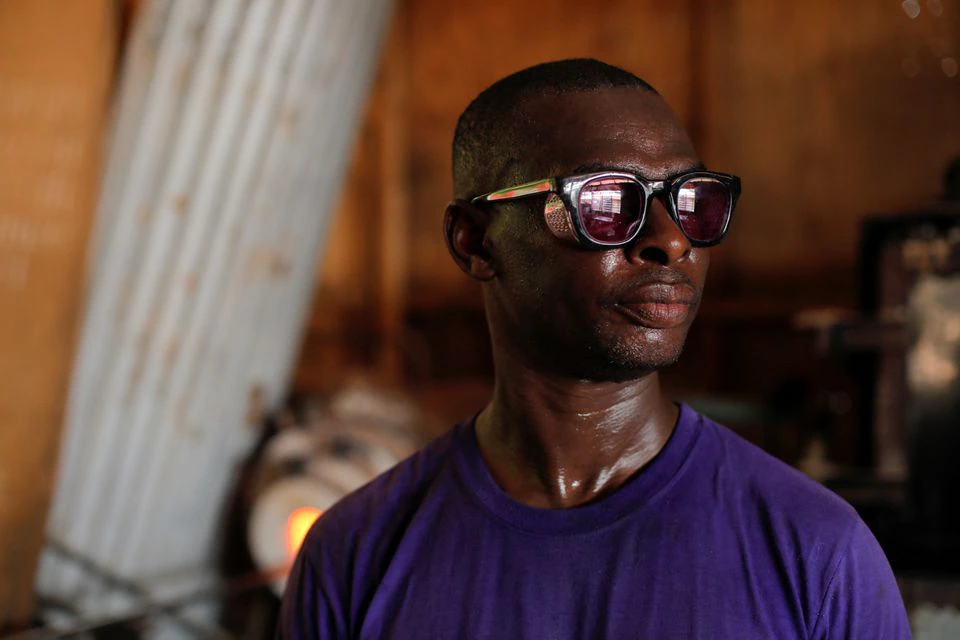
According to the Observatory for Economic Complexity, Ghana imports around $300 million in glass and ceramic products each year. More than 80% of that comes from China, the world's top glass exporter.
While some private companies recycle their glass, Tetteh says the majority of Ghana's glass waste ends up either in landfills or scattered throughout the nation's streets, posing a safety hazard.
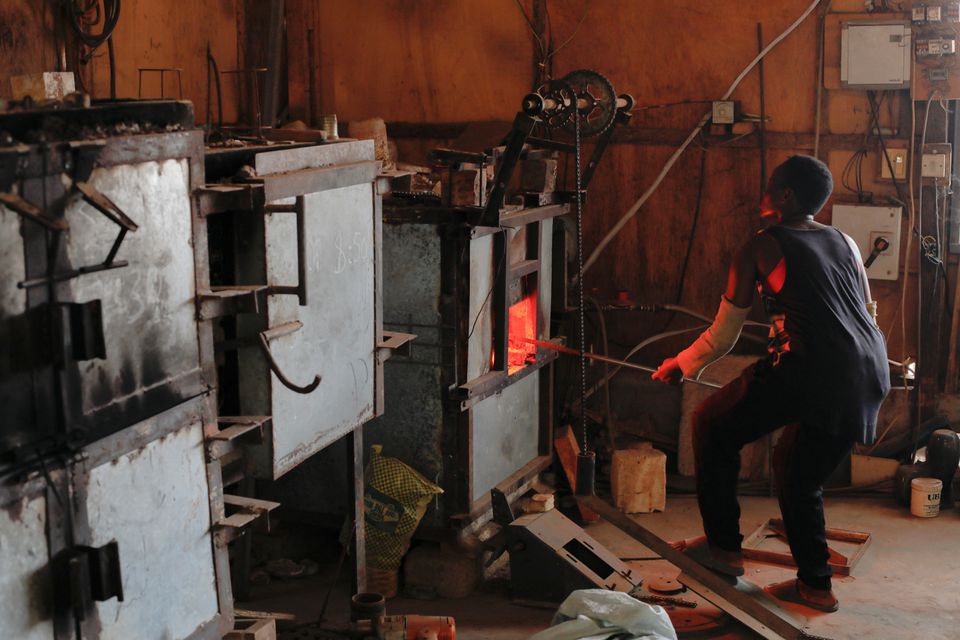
"We don't have a (glass waste) collection process, and we don't want broken glass flowing around like that," he said. "If we use recycled (materials), we can make money."
Hailing from the town of Odumase-Krobo, the epicentre of Ghana's traditional glass bead culture, Tetteh discovered glassblowing in 2012 after spending several months in France and the Netherlands learning the craft with other Ghanaian bead-makers.
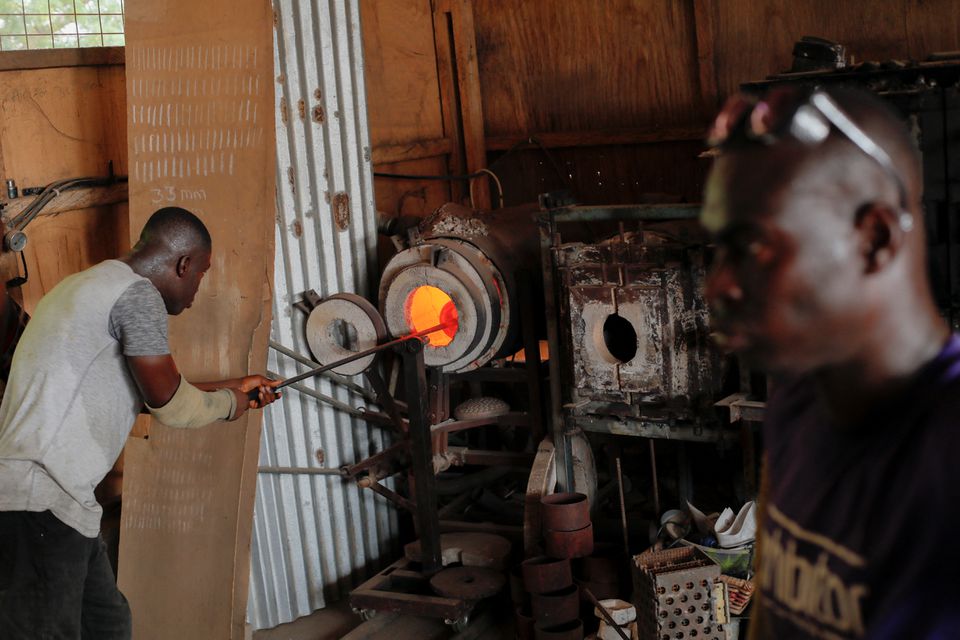
He was alone in his desire to continue upon returning home and set a goal to establish a proper hot shop in Odumase-Krobo.
Undeterred by lack of finance, he built furnaces from scrap metal and clay using online tutorials. He fine-tuned his abilities by watching YouTube videos of famous glass artists like America's Dale Chihuly.
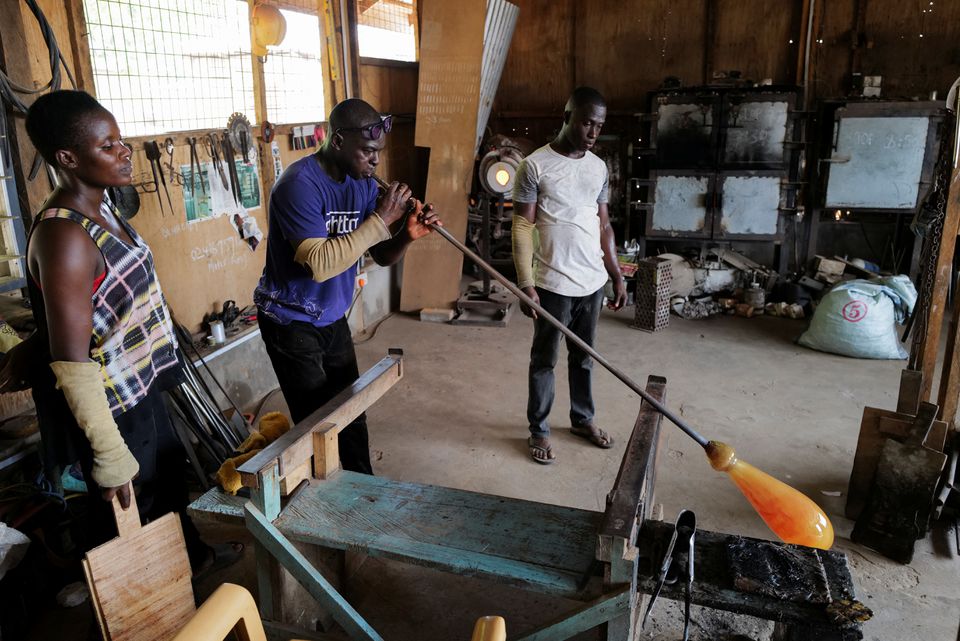
He has since hired several young assistants from Odumase-Krobo, who he is training and hopes will one day run their own workshops. Their work can be found in boutique shops in Ghana and Ivory Coast, and has appeared in European and American art galleries.
"My heart (wants) to train young Ghanaians, both men and women, so they can learn this job," he said. "We will not have to go to other countries like China to buy what we want for Ghana."
Latest Stories
-
Ghana ranked 7th globally as biggest beneficiary of World Bank funding
6 mins -
IMF board to disburse $360m to Ghana in December after third review
10 mins -
Former Bono Regional NPP organiser donates 13 motorbikes to 12 constituencies
16 mins -
Securities industry: Assets under management estimated at GH¢81.7bn in quarter 3, 2024
21 mins -
Gold Fields Ghana Foundation challenges graduates to maximise benefits of community apprenticeship programme
2 hours -
GBC accuses Deputy Information Minister Sylvester Tetteh of demolishing its bungalow illegally
2 hours -
Boost for education as government commissions 80 projects
2 hours -
NAPO commissions library to honour Atta-Mills’ memory
2 hours -
OmniBSIC Bank champions health and wellness with thriving community walk
2 hours -
Kora Wearables unveils Neo: The Ultimate Smartwatch for Ghana’s tech-savvy and health-conscious users
3 hours -
NDC supports Dampare’s ‘no guns at polling stations’ directive
3 hours -
Police officer interdicted after video of assault goes viral
3 hours -
KNUST’s Prof. Reginald Annan named first African recipient of World Cancer Research Fund
3 hours -
George Twum-Barimah-Adu pledges inclusive cabinet with Minority and Majority leaders
4 hours -
Labourer jailed 5 years for inflicting cutlass wounds on businessman
4 hours

